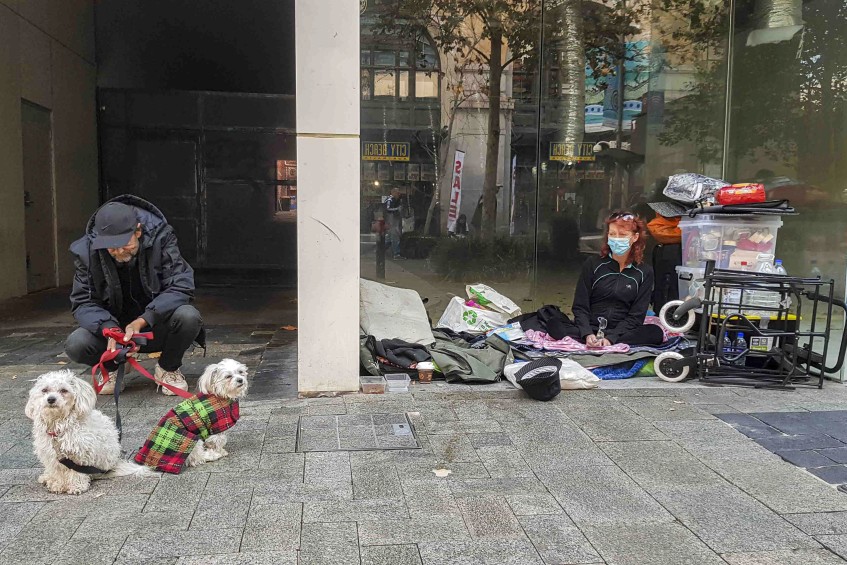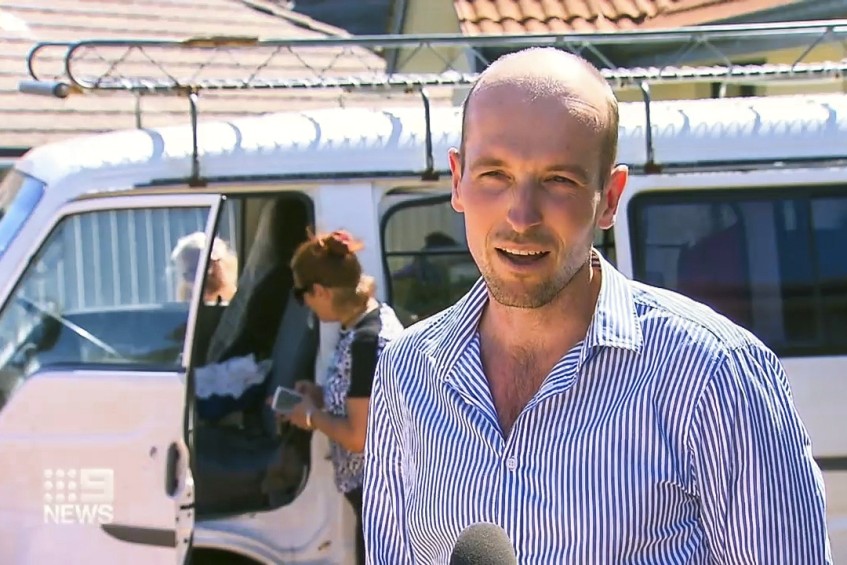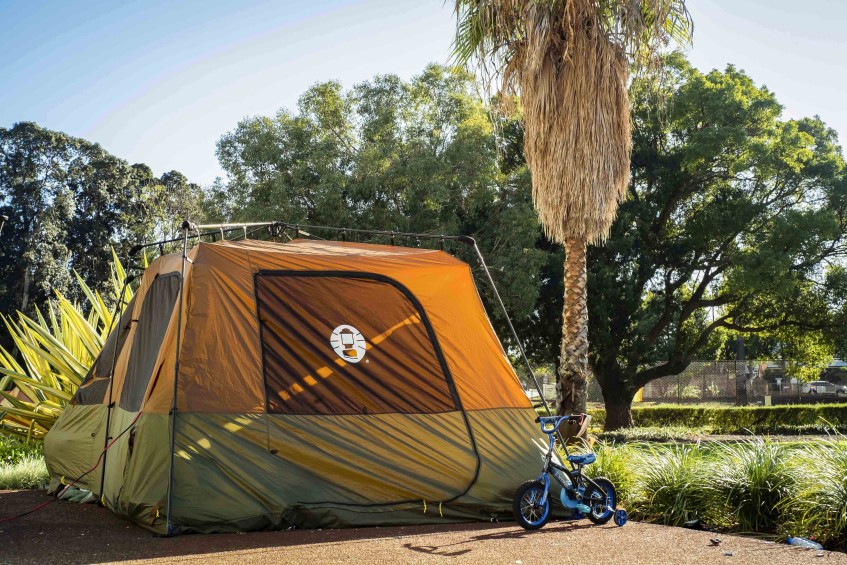COVID-19 UPDATE: Homeless find a new dawn during pandemic in Advocacy Centre

Homelessness has become a far more apparent issue during COVID-19, with the virus amplifying existing issues and vulnerabilities. Photo: Daniel Spriggs.gs.
By Eric Martin
Homelessness has become a far more apparent issue during COVID-19: the virus has amplified existing issues and vulnerabilities and Daydawn Advocacy Centre, the Catholic agency that advocates in the area of indigenous housing, reports that the pandemic has resulted in an upsurge in demand for their services, especially in the area of temporary accommodation.
“Yes, it really did get much busier during this time for our agency, we have three paid staff members and we’ve been working extra hours rather than less,” said Mark Reidy, Daydawn’s Director.
“Our volunteers are all working from home and we have kept them busy, feeding out letters and contact numbers to them to chase down on behalf of the people we assist.”
Even though the WA Housing Department put a hold on eviction notices being issued during the current crisis, the main issue that Daydawn dealt with daily beforehand, the LifeLink agency experienced a dramatic shift in the specific need that required their attention.
“There were a lot of people living on the street who started to panic about the virus, they heard about the plan to place homeless people in hotels and with a grant that we received during this time, we used some of that money to help house people,” said Mr Reidy.
“During the pandemic we’ve had as many as 20 to 30 phone calls a day for assistance: there was a bit of a panic because we can only house so many.”

Jesse Noakes, Daydawn’s legal representative, is a vocal advocate for Indigenous people facing eviction and spearheaded the agency’s proactive and flexible response to COVID-19’s impact on Perth’s homeless community. Photo: Nine News.
Jesse Noakes, Daydawn’s legal representative, was highly active organising temporary accommodation and spoke with The eRecord about the surge in demand for this service.
“As the disease was beginning to spread through the community, people were starting to get anxious and scared about what it might mean for them and their families,” Mr Noakes said.
“Though the grapevine out on the street is strong, there’s still a bit of a delay sometimes, so I think that while people knew that something was going on, they knew that it was threatening and dangerous - they didn’t have the second part of the information, which was what to do in response.
“And I think that even when they did have that information, there was this very keen awareness that the measures being recommended or in some cases dictated by the Government just weren’t available to them,” he said.
“There was just a strong sense that things could get pretty desperate very quickly.”
Daydawn started working with the Departmental Taskforce and other organisations, such as Shelter WA, Uniting Care West, Anglicare and other communities, to try and get some responses in place.
“That awareness that our clients were most vulnerable to COVID-19, most likely to be impacted and on the front line, was what motivated us to implement our own immediate crisis response: there were a few gaps and we were able to address those gaps,” Mr Noakes said.
“What we have at Daydawn is a very close relationship with our clients, with the families and with the community and the individuals that we work with that has been developed over years, in some case even decades of contact and relationship building. So we have a qualitative understanding of the need and what’s going to be the best way to proceed in meeting that need.”

The homeless and the vulnerable camped out near Daydawn Advocacy Centre’s office in tents provided by the Catholic Advocacy Centre; the child’s bike parked outside a poignant reminder of the tragic nature of the crisis. Photo: Daniel Spriggs.
Over the course of the last six weeks to two months, Daydawn has accommodated some 80 people.
“We had 40 people at one point in a hotel in Fremantle and to take that as a case study: there were families, single people and couples; the youngest were children within those families and the oldest were in their 60’s,” he said.
“We’re still supporting them in their accommodation but with the current double payments (such as the Newstart payment from Centrelink), we are hoping that they will be able stay there for the long term.”
This is the first time that many of these people have been off the street in years, in some cases decades.
“It was great to be able to provide an immediate solution for some of our clients and to continue to do that, but going forwards, no-one really wants to live in a hotel long-term: what people want is a home to call their own and unfortunately there are still all those systemic barriers to that which were there previously,” Mr Noakes said.
“Once you’ve got a house, it provides the foundation for everything else: it provides a basic level of security and stability.
“And that was one of the things that we saw at the hotel, was that even just a few nights off the street with a safe, secure roof over their head (a place to rest, keep clean and stay safe) it was remarkable to see that it wasn’t just a way to prevent the physical risk of infection, it was also very stabilising and centring from a psychological perspective.
“It gave people the opportunity to do things that maybe that hadn’t been able to do before: things like doing housing applications, getting comprehensive health checks – simply because there was a period of calm in what has otherwise been a very chaotic life on the streets.”
Daydawn has applied for additional funding from Lotterywest and the Perth City Council as there are hundreds still out on the streets sleeping rough, and the agency has also been giving out tents and sleeping bags.
“I think people were really appreciative that we kept our doors open during this time,” Mr Noakes said.
The Archbishop’s 2020 Winter Appeal for LifeLink was officially launched 4 May 2020.
To donate to LifeLink, go to www.lifelink.com.au
Read the Archbishop’s Letter by Clicking Here
